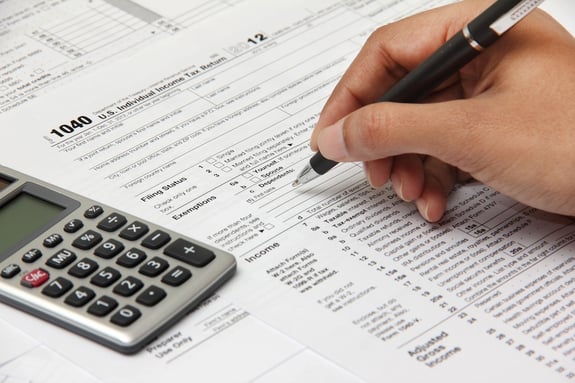How to Save Taxes in Retirement
Retirement means leaving the days of cashing paychecks behind you, but it doesn't mean you get to stop paying tax on your income. Add in the fact that some people do not have enough saved to maintain their lifestyles in retirement, and you'll find the issue of paying taxes in retirement becomes an important one.

Here is what you need to know about how to save on taxes in retirement.
Learn About Taxation
Before you take the leap into retirement, learn which of your retirement savings are taxable. Certain retirement accounts, like a Roth IRA, are funded with income on which you have already paid taxes.
However, many retirement accounts are built with money taken from your pre-tax income. Traditional IRAs and 401ks are good examples. Then, there are all the non-retirement accounts you intend to use to fund your retirement, like a stock portfolio or real estate. You have to pay tax on gains from these investments, too. Make sure you understand what is taxable and why.
Know Where You Stand
Most people coming into retirement have several types of assets — retirement accounts, Social Security, some real estate and some stocks. These investments are taxed at different rates for different reasons. While understanding the taxation of your gains from those assets can help you save on taxes in retirement, it is equally important to know exactly where your assets lie.
When you have a strong handle on your entire investment portfolio, you could enjoy more tax planning opportunities and potentially save quite a bit.
Manage Your Income Bracket
Part of your tax rate is determined by your income bracket — the income range subject to a specific income tax rate. By keeping your retirement income under a certain point, you could reduce the amount of taxes you need to pay. "The easiest way to reduce taxes is by keeping your income within the tax bracket that taxes long-term capital gains at 0 percent," explains Nathan Garcia, Managing Director of Westbourne Investments. "As a couple, this means income of less than $75,300 in 2016. Doing so will also keep your ordinary income taxes in the 15 percent bracket."
Staying at the top of your tax bracket makes good sense, but you will often need the advice of a professional. Social Security income, money received from annuities or pensions, and any other income source you enjoy will impact your tax bracket, but so will the basis of your investment accounts.
As you prepare for retirement, remember to include tax planning into your portfolio strategy. Make sure you understand how your assets are taxed and know exactly what you have in your portfolio, including retirement savings and other assets. Lastly, talk with a professional about how you can structure your retirement withdrawals to manage your income bracket and reduce your overall tax burden. Your future comfort depends on it.

